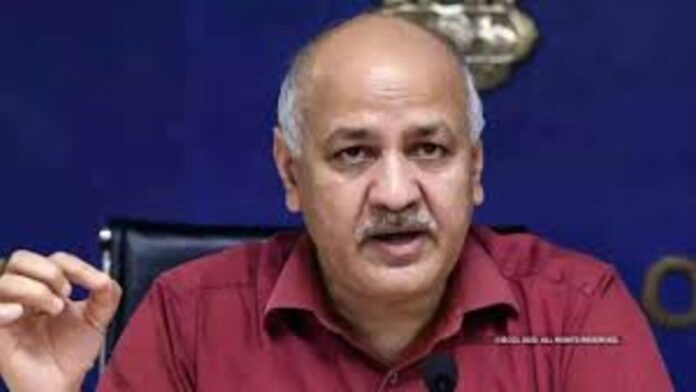Manish Sisodia, a former deputy chief minister of Delhi and leader of the Aam Aadmi Party (AAP), had his bail request in the money laundering case involving the excise policy rejected by a Delhi court on Friday.
Sisodia’s bail request was denied by special judge MK Nagpal in the case brought by the Enforcement Directorate (ED) alleging his involvement in the creation, distribution, and transfer of criminal gains.
After being questioned by the agency in Tihar Jail, Sisodia was taken into custody by the ED on March 9.
On March 10, he was sentenced to seven days in ED custody, which was later increased to five days.
On March 22, he was then taken to Tihar Prison.
On March 21, Sisodia moved the bail motion in the matter involving money laundering.
Sisodia had maintained during the hearings that no violation of the Prevention of Money Laundering Act (PMLA) was established because there were neither allegations nor tangible proof that Sisodia had obtained, hidden, or used the profits of crime.
Sisodia’s attorneys, Dayan Krishnan and Vivek Jain, argued that the allegations presented by ED were to the creation of policy rather than the profits of crimes.
Since the officials were under the command of the lieutenant governor (LG), they had also questioned the veracity of their statements.
They had also disproved the claims that witnesses had been manipulated and that evidence had been destroyed.
On the other side, the ED claimed that Sisodia was one of the main conspirators in the conception and application of the policy and was also a key player in the establishment of the framework for the production, distribution, and transfer of criminal proceeds.
In his defence of ED, attorney Zoheb Hossain addressed the claims that L-G had an effect on the officers whose remarks were recorded.
Sisodia’s attorneys, Dayan Krishnan and Vivek Jain, argued that the allegations presented by ED were to the creation of policy rather than the profits of crimes.
Since the officials were under the command of the lieutenant governor (LG), they had also questioned the veracity of their statements.
They had also disproved the claims that witnesses had been manipulated and that evidence had been destroyed.
On the other side, the ED claimed that Sisodia was one of the main conspirators in the conception and application of the policy and was also a key player in the establishment of the framework for the production, distribution, and transfer of criminal proceeds.
In his defence of ED, attorney Zoheb Hossain addressed the claims that L-G had an effect on the officers whose remarks were recorded.
It was introduced to replace a trading licence fee-based system that was dependent on sales volume, and it promised swankier stores that would ultimately improve the shopping experience for customers.
A first for Delhi, the policy also included discounts and offers on the purchase of alcoholic beverages.
The scheme, however, came to an abrupt halt when L-G VK Saxena suggested a CBI investigation into purported anomalies in the regime.




